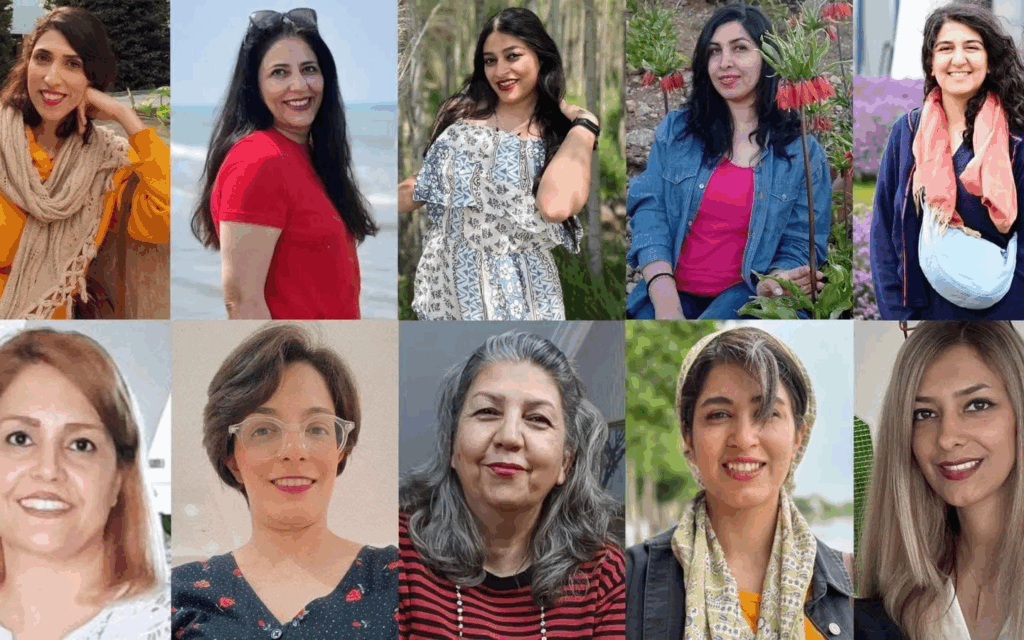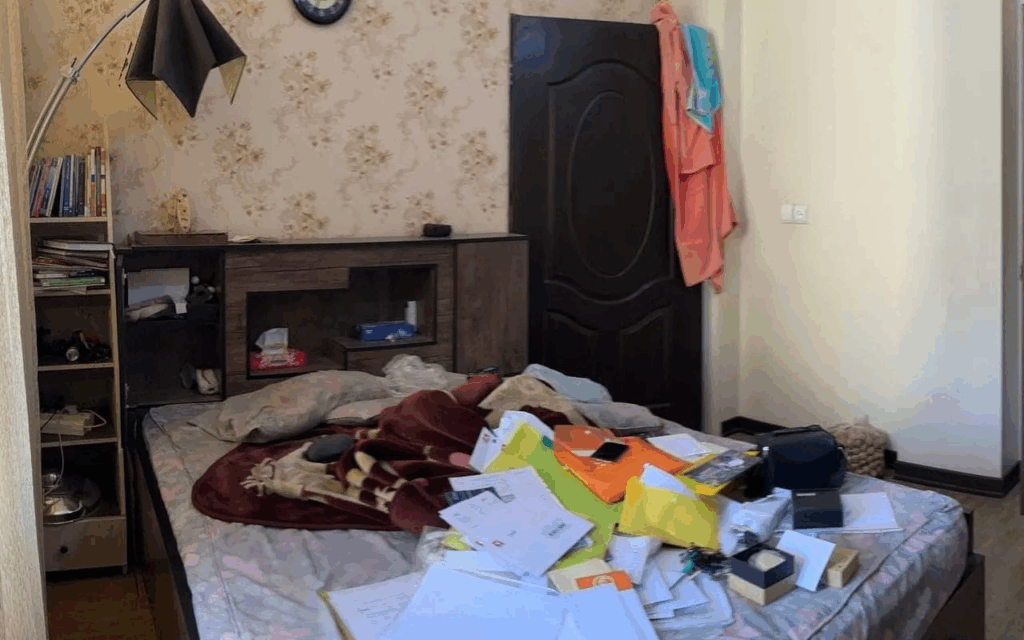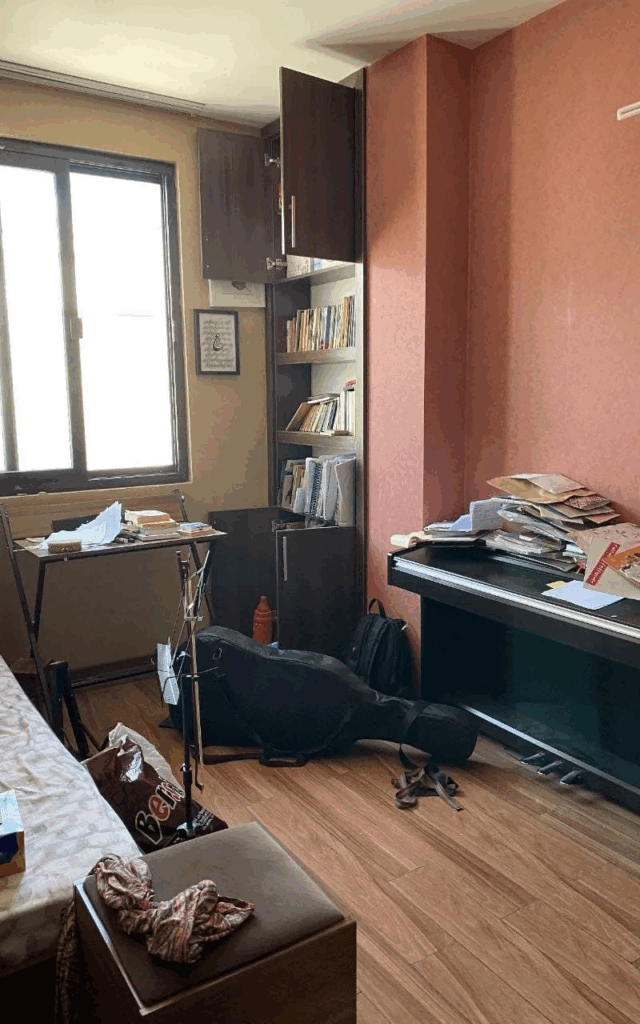Source: www.yahoo.com
Afshin Madadi

The Islamic Republic has stepped up its systematic persecution of Iran’s Baha’i religious minority.
Authorities of the clerical regime are sending text messages ordering Baha’is to leave places they have owned for decades.
In one case, more than 20 Baha’is in central Isfahan province face the seizure of their homes, assets and vehicles solely because of their faith.
Iran is using article 49 of its constitution – meant to target illegally obtained property – to confiscate legally owned assets without evidence or due process.
“The judge has told the Baha’is that he has the intention to confiscate the assets of all the Baha’is – so you see these are not isolated events,” Padideh Sabeti, a spokesman for the Baha’i international community in London told The Telegraph.
“This kind of a campaign wants to further impoverish the Baha’i community who, like the rest of the country, are suffering from economic decline in the country but they are facing it doubly.”

On Wednesday, the Islamic Revolutionary Guard Corps intelligence agents raided 10 Baha’i homes and businesses in Isfahan, confiscating property and threatening residents without warrants.
The raids targeted Navid Mogharebin, Saeed Mogharebin, Manouchehr Rezaei, Sepehr and Shahab Torabi, Babak Babakan, Behnam Janmiyan, Peyman Makhmoor, Kourosh Sadeghi and Omid Firouzmandi.
Agents first searched seven businesses owned by Baha’i adherents before proceeding to raid their homes. Three neighbours who are also Baha’i were later targeted.
During the searches, agents confiscated phones, computers, tablets, books, photographs, gold and coins. The raids were carried out on a “verbal order” without legal warrants. Agents broke down one door and assaulted a young man in another home.

The property seizures coincide with an intensified crackdown on the Baha’i community that began after the June ceasefire between Israel and Iran.
Since then, dozens of Baha’i homes have been targeted in coordinated raids carried out by armed intelligence agents, often in the early hours of the morning.
Families across Iran have reported masked officers entering their bedrooms, seizing electronic devices, religious texts and personal belongings.
In some cases, parents and children have been detained and taken to undisclosed locations.
Religious materials, including prayer books and writings of the Baha’i faith, are being treated as contraband.

Among those affected is Fariba Kamalabadi, 62, one of Iran’s most prominent Baha’i prisoners.
When Israeli missiles struck Evin prison during the 12-day war in June, her family lost contact with her for 48 hours.
She was subsequently transferred to Qarchak prison, a former livestock facility converted into a detention centre 40 miles south of Tehran.
Ms Kamalabadi now shares a 12 square-metre room with seven other women, surrounded by triple-bunk beds so low the prisoners cannot sit upright.

Shia Islam is the state religion in Iran. The constitution recognises several minority faiths, including Christianity, Judaism and Zoroastrianism, but not the Baha’i faith.
Baha’is in Iran face systematic persecution, including restrictions on education, employment and religious practice.
They are often accused of espionage or acting against the government, though the Baha’i international community says no evidence has ever been presented to support these claims.
The confiscations are a significant escalation in the systematic persecution of Iran’s Baha’is, who have faced discrimination since the 1979 Islamic Revolution.
Many community members learned of the seizures through SMS notifications sent outside formal legal procedures, with no records appearing in Iran’s official e-justice portal and lawyers denied access to case files.
Judge Morteza Barati, who presides over the Special Court for Article 49 in Isfahan, has said his intention is to “strip” all Baha’is in Isfahan of their belongings.
The text messages simply inform recipients that their property has been confiscated and they must leave.
“Article 49 was crafted to return stolen wealth – not to steal citizens’ possessions and completely deprive families of their homes and basic livelihoods,” said Simin Fahandej, representative of the Baha’i international community to the United Nations in Geneva.

She added: “What we are seeing is state-led theft, confiscation by text message. It is discriminatory, unlawful, and intended to impoverish a religious minority for no reason other than their faith.”
The escalation of persecution against Baha’is after the war follows a familiar pattern of the Iranian regime targeting minority groups during times of broader social and political tension.
Ms Sabeti emphasised the dangerous precedent being set by authorities’ misuse of legal mechanisms.
“The regime in this difficult economic climate that all Iranians suffer has found an instrument and they’re trying to legalise it to use to further put pressure and impoverish the Iranian Baha’i community,” she said.
The confiscations are being processed through the Special Court for Article 49, a branch of the Revolutionary Court operating under the Executive Headquarters of Imam Khomeini’s Order.
Under Iran’s framework, property seized via article 49 is placed at the disposal of supreme leader Ali Khamenei, meaning confiscations targeting Baha’is are channelled to entities under the supreme leader’s direct authority.
In recent months, authorities have opened new proceedings against nearly two dozen Baha’is before the Special Court for Article 49.
The cases include individuals already serving heavy sentences, others awaiting appeal, and some with acquittals from previous cases.
No evidence has been presented to justify the confiscations, which have swept up homes, farms, vehicles and bank accounts.
“The trouble is that there is no record of it on electronic files of the government so even their lawyers can’t defend them,” Ms Sabeti explained.
“It’s basically theft, because if you don’t keep a record of confiscating properties of the citizens and the lawyers have no access to it.”
Reports from court interactions describe a climate of intimidation.
In one incident, Judge Barati expelled a Baha’i woman from his office with the threat: “If the court is convened, we will ruin your life.”

Individuals have been told that phone calls count as summonses and warned that arrest warrants will follow if they do not comply immediately, even when defendants are under electronic monitoring or undergoing medical treatment.
The new confiscation orders have sped up an ongoing crackdown against the religion in Iran.
Ten Baha’i women in Isfahan – Negin Khademi, Yeganeh Agahi, Yeganeh Rouhbakhsh, Neda Badakhsh, Mojgan Shahrezaie, Shana Shoghifar, Arezou Sobhanian, Parastou Hakim, Bahareh Lotfi and Neda Emadi – were sentenced in October 2024 to a combined 90 years in prison.
Nearly a year later, each was notified by SMS and outside the official registry that a new article 49 case had been opened against her.
Hamid Monzavi, Arshia Rowhani and Arash Nabavi, already under electronic monitoring, were informed they were barred from transactions while an article 49 hearing was set.
Neither they nor their lawyers appeared as they were blocked from reviewing the files.
Another Baha’i in Isfahan received an SMS saying that his bank account had been frozen by court order, with no explanation provided.
The actions fit within a four-decade pattern of state-sponsored confiscation of Baha’i property since the 1979 Islamic Revolution.
“Basically they have always confiscated Baha’i properties but now under evoking article 49 is very dangerous because it will set a legal precedent for other cities to use this legal instrument,” Ms Sabeti warned.
She described the current campaign as potentially a pilot programme.
“We’re seeing this as a pilot that they’re doing this by trying to give it a legal cover to confiscate in one part of the country and then expanding it to others.”
‘Some are in prison’
She described how the confiscations affect families’ ability to survive economically.
“How are they going to make a living? These people, some of them are actually in prison, some of the people have received the text.
“The 20 women who are in prison are among those who have received this text. It intimidates Baha’is all over Iran as this news is spread and they learn about it.”
Since the June ceasefire, authorities have arrested more than 2,000 people on espionage accusations, with at least six already executed by hanging.
The crackdown has been so intense that many community members fear speaking out about arrests, worried their loved ones in prison could face harsher treatment.
Community members believe authorities use periods of international distraction to intensify pressure on Baha’is.
However, Ms Sabeti said that persecution has been constant.
“It was happening nationwide but it’s gaining intensity and we’re seeing how they’re misusing article 49.”
Communication with those affected has become increasingly difficult due to new legislation targeting information sharing.
Fear among the community has intensified due to harsh penalties for those accused of providing information to foreign entities.
Mohammad Javad Akbarin, an Iranian religious scholar, said the persecution extends beyond the Baha’i community.
“What the Islamic Republic is doing today to our Baha’i fellow citizens is not merely a human rights violation against the Baha’is – it is an assault on Iranian society itself, on its diversity and pluralism.”
Leave a Reply